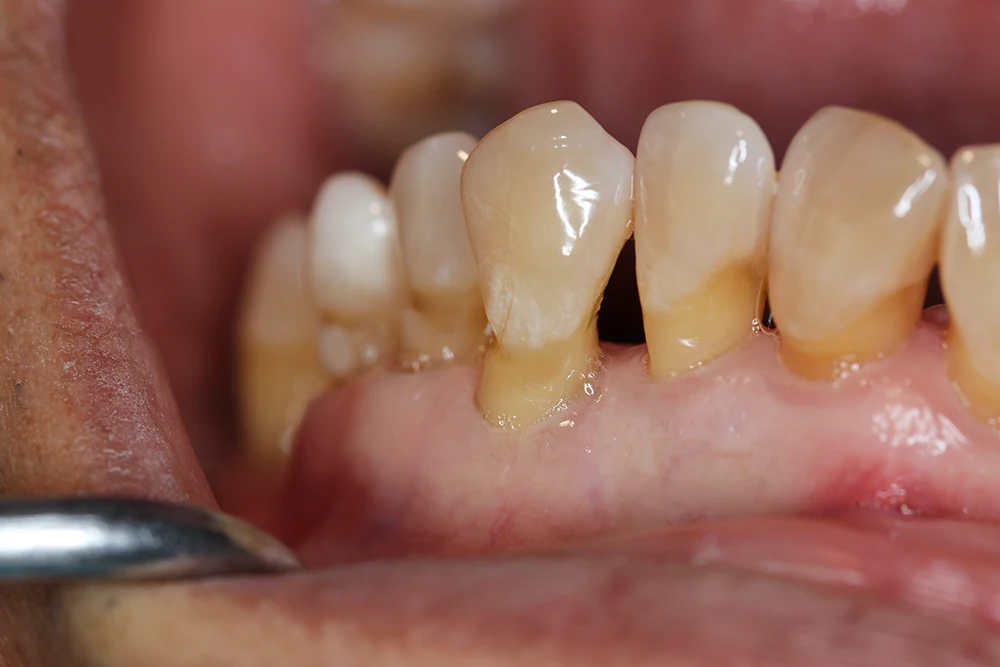Gingivitis is a form of gum disease that causes inflammation of the gingiva, the gum that surrounds the base of the teeth. While it’s a mild form of gum disease, it can progress to periodontitis (a more serious dental condition) if left untreated. Let’s take a closer look at what causes gingivitis, how to prevent it, and the symptoms to look for.

Gingivitis explained
The symptoms of gingivitis
If you experience any of the following symptoms, schedule an appointment with your Fort McMurray dental clinic right away. The sooner your dentist can confirm whether it’s gingivitis or another dental condition, the sooner you can receive the right treatment and prevent other issues from arising.
- Swollen and irritated gums
- Tender and dark red gums (healthy gums are firm and pale pink)
- Gums that bleed easily when brushing or flossing
- Bad breath
- Receding gums
What causes gingivitis?
Gingivitis happens when there is an excess buildup of plaque on the teeth and gums, a sticky substance that contains bacteria. Plaque forms when the normal bacteria in the mouth interact with the starches and sugar in food. The bacteria in the plaque contains toxins that can irritate the gums which, over time, leads to the gums becoming inflamed.
The buildup of plaque then hardens into tartar, which is more difficult to remove. When the plaque and tartar remain on your teeth, they irritate the gingiva, causing inflammation. Although anyone can get gingivitis, there are some factors that increase your risk, including:
- Poor dental hygiene
- Smoking or chewing tobacco
- Poor nutrition
- Hormonal changes
- Misaligned teeth
- Older age
- Dry mouth
- Medical conditions that decrease immunity
What happens when gingivitis is left untreated?
Untreated gingivitis can lead to the progression of the periodontitis, a more serious form of gum disease that can cause tooth loss, receding gums, loose teeth, and loss of jawbone which affects the facial structure. Additionally, there are some studies that have linked periodontitis to other medical issues, as its thought that the bacteria can enter the bloodstream through the gum tissue and contribute to heart disease, respiratory issues, stroke, rheumatoid arthritis, among others. Although more research needs to be done on this, it highlights the importance of why gingivitis symptoms should never be ignored.
The treatment and prevention of gingivitis
When you visit your Fort McMurray dental clinic, your dental team will remove the buildup of plaque and tartar that is causing the gingivitis. When plaque has hardened into tartar, it requires professional treatment to remove. Your hygienist will then apply a fluoride treatment that helps prevent tooth decay. Your dentist will look for cavities or signs of complications and recommend the right treatment plan if necessary.
Good oral hygiene is key to preventing gingivitis and removing plaque. Be sure to:
- Brush your teeth daily in the morning and before bed
- Use fluoride toothpaste
- Floss at least once a day
- See your dentist regularly for cleaning and checkups
- Eat a well-balanced diet
- Limit sugary and starchy foods





